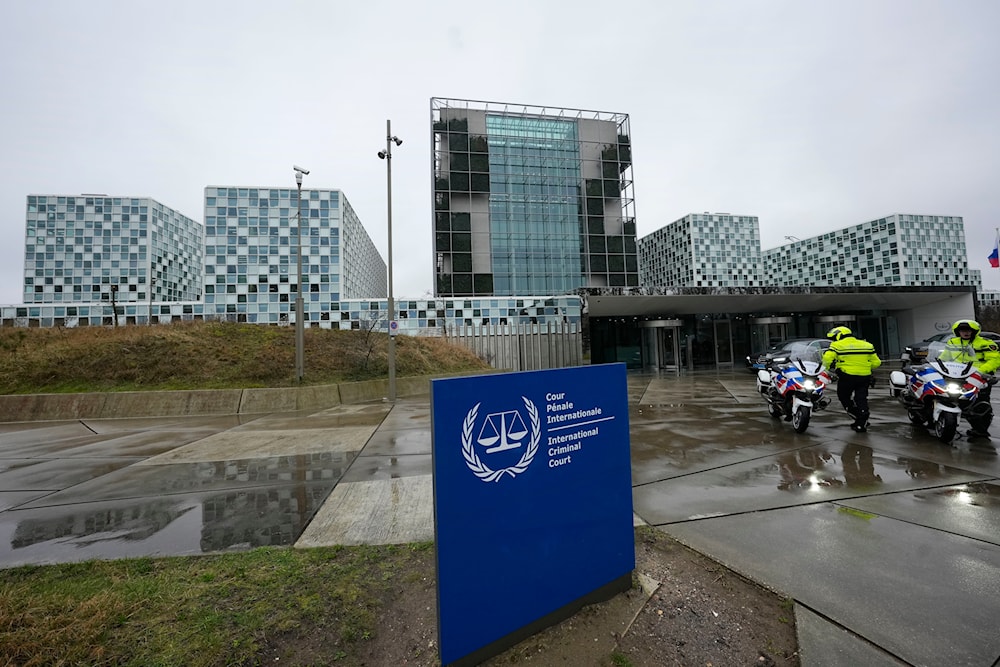ICJ holds public hearing on Israeli policies in occupied Palestine
The International Court of Justice commences a week-long series of sessions to examine the Israeli policies of occupation, settlement, and annexation in the Palestinian territories, discussing the legal ramifications for "Israel."
-

The International Criminal Court is pictured at The Hague, Netherlands, on February 14, 2024. (AP)
The International Court of Justice in The Hague will commence public hearings on Monday regarding the legal consequences stemming from illegal Israeli apartheid policies and practices in the occupied Palestinian territories, including occupied East al-Quds.
During the sessions, the court is scheduled to hear briefings from 52 countries - including the United States, "Israel's" biggest supporter, as well as China, Russia, South Africa, and Egypt.
Palestinian Foreign Minister, Riyad al-Maliki, will speak at the session, while the occupation's representative will not be present.
The entire world witnessed "Israel" being brought before international courts for its decades-long crimes against #Palestinians. pic.twitter.com/L49HkdaMsR
— Al Mayadeen English (@MayadeenEnglish) January 23, 2024
The sessions will occur within the context of the United Nations General Assembly's request for an advisory opinion from the court on the effects of the 75-year-long Israeli occupation. These hearings are scheduled for six days starting February 19th.
Judges to review 'occupation, settlement' policies
The hearings are part of a Palestinian campaign aimed at urging international legal institutions to look into Israeli crimes, particularly since the onset of Israeli aggression on the Gaza Strip on October 7, 2023, resulting in the martyrdom of approximately 30,000 Palestinians, including women and children.
Read next: South Africa to take 'Israel' to court, again, over Rafah offensive
During the sessions, the judges are tasked with reviewing policies related to "occupation, settlement, and annexation," as well as measures aimed at altering the demographic composition and the character and status of occupied al-Quds. They will also assess how these policies and practices impact the "legal status" of the occupation and the resulting legal consequences.
Below are the provisional measures requested by #SouthAfrica in its lawsuit against 'Israel' pic.twitter.com/rB3c0dduai
— Al Mayadeen English (@MayadeenEnglish) January 26, 2024
It is worth noting that the proceedings were initiated in December 2022 when the United Nations General Assembly submitted a request for an advisory opinion by the ICJ to assess the legal toll of "Israel's" apartheid policies on the occupied Palestinian territories. The General Assembly made a similar request in 2003, following which the ICJ advisory opinion determined the route of "Israel's" separation barrier violated international law and advocated for its dismantlement.
These proceedings are therefore distinct from the ones initiated by South Africa in December last year. They are considered "wider in scope" and will specifically focus on the "legal consequences arising from the ongoing violation by Israel of the right of the Palestinian people to self-determination, from its prolonged occupation, settlement, and annexation" of the occupied Palestinian territory, including "its adoption of related discriminatory legislation and measures," and on the legal ramifications of the occupation and the practices of "Israel" for all nations and the UN.

 3 Min Read
3 Min Read










